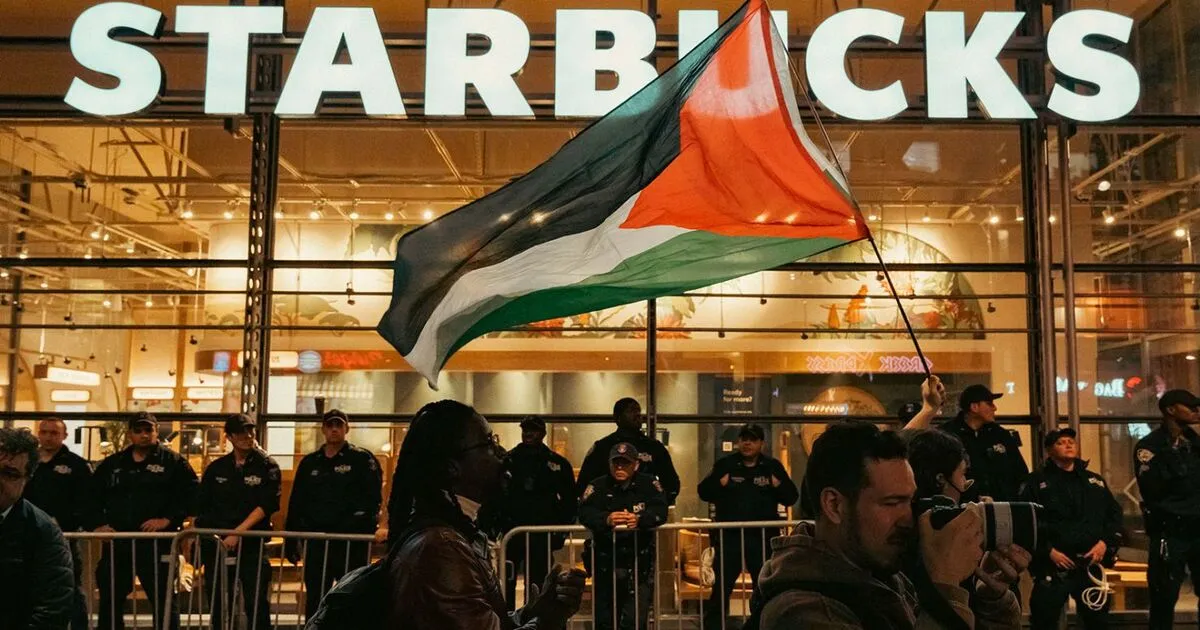A company’s opinions can influence a company’s reputation in today’s digital world. Starbucks has recently faced a lot of anger that has led to widespread boycotts being organized on the internet. In platforms like TikTok, hashtags such as #BoycottStarbucks and #FreePalestine have been flooding with millions of views and innumerable posts. But what exactly set off this movement and Why Are People Boycotting Starbucks their favorite beverage store?
Table of Contents
Why Are People Boycotting Starbucks?
Overview of the Reasons Behind the Boycott
These reasons are diverse, but mostly, they revolve around two main issues:
- Middle East Tension
- The Lawsuit Between Starbucks and Its Workers’
Boycotts Over Tensions in the Middle East
The initial wave of boycotts arises from the complex and sensitive geopolitical context in the Middle East, especially the Israel-Hamas conflict. On social media, the Starbucks Workers United Union made a post showing solidarity with Palestine shortly after the tragic Hamas attacks against Israel. This particular post caused a significant backlash.
Starbuck’s Legal Counteraction
Consequently, Starbucks sued Workers United for trademark infringement, arguing that using similar logos and names implied that the company supports the political position of those unions. In its official statement, Starbucks disassociated with any pro-Palestinian sentiments espoused by the union, condemning acts of terrorism or violence outright. Moreover, it indicated that customers had responded angrily to employees because of what they saw as a union endorsement of terrorism.
Public Reaction and Outrage
However, public opinion remained divided despite the firm’s clarifications. A significant number of individuals supporting Palestine believed that Starbucks and its messages were not supportive or even hostile towards Palestinians at all. As a result, there was a massive outcry on social media, with millions of engagements after the hashtag #BoycottStarbucks emerged
The Starbucks-Workers United Lawsuit
The second core reason for the boycott is the tension between Starbucks and its employees, particularly those involved in union activities. It has been an ongoing saga, with the first NY Buffalo Starbucks store unionizing in 2021. Over three hundred forty stores countrywide have since followed suit, seeking better pay, terms of service and scheduling arrangements, amongst other things.
Unionization Efforts and Company Pushback
Starbucks Workers United has faced significant challenges in negotiating a union contract. The friction culminated in protests, notably on “Red Cu” Day, one of Starbucks’ promotional events. On this day, employees from 360 stores walked out, demanding better treatment and highlighting their grievances.
Impact on Starbucks’ Reputation
The lawsuit filed by the union against Starbucks for defamation further complicated matters, painting the company in a negative light. Accusations of anti-union activities and worker suppression have exacerbated public perception issues, contributing to the ongoing boycott.
Analysis of the Boycott’s Impact on Starbucks
The boycott of Starbucks has been profound, affecting its financial performance and brand image.
Trends of Revenue and Financial Impact
It cannot be attributed solely to the boycott, although it is one of many reasons Starbucks has had financial difficulties lately. However, Starbucks’s market value has significantly decreased recently. Last month, it saw a decline of 9.4% in its market cap from nearly $11 billion. Also, there have been several sessions where their stock prices have fallen, indicating that investors may be concerned about ongoing controversies.
Customer Sentiment and Brand Image
The damage caused by boycotts extends to consumer sentiments as well. From how social media users post their dissatisfaction with Starbucks, footfall rates and sales can convey these trends perfectly well. An assortment of negative posts has badly damaged this commercial name and calls for boycotting, meaning that marketing teams must help rebuild their reputation through their best public relations strategies.
Effectiveness of Boycotts in the Digital Age
Boycotts in our current digital era can rapidly become powerful if they go viral or if enough hashtags are used or shared online, thereby necessitating a new strategy for approaching them.
Corporate Social Responsibility (CSR) and Brand Image
Boycotts show us how important Corporate Social Responsibility (CSR) is. Thus, companies must match their actions to those of their customers. For example, Starbucks teaches organizations how delicate an equilibrium they must strike while grappling with intricate political and social matters.
Lessons for Other Companies
Starbucks’ experience with the boycott serves as a good lesson for others who want to learn from its mistakes. A positive brand image can be maintained while avoiding public backlash by simply communicating properly, being transparent, and acting proactively regarding employee grievances or customer concerns.
Conclusion: Why Are People Boycotting Starbucks? A Comprehensive Analysis
The Starbucks boycott illustrates how social, political, and labour issues coalesce, resulting in significant implications for a multinational corporation. The case has raised matters of corporate responsibility, the influence of social media, and the ever-changing relationship between companies and stakeholders.
Let us know your thoughts about this topic. Has any of these ongoing controversies driven your decision? Are boycotts effective as drivers for change? Join our conversation below by commenting and sharing your ideas.

